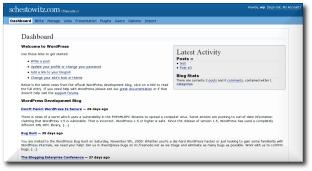Bloated Applications Deter Some Users

 S time progresses and computer hardware matures, there appears to be a worrisome trend. Backward compatibility, and sometimes practicality and simplicity, are being compromised. Applications get ever more bloated, attempting to be the entire world, and more.
S time progresses and computer hardware matures, there appears to be a worrisome trend. Backward compatibility, and sometimes practicality and simplicity, are being compromised. Applications get ever more bloated, attempting to be the entire world, and more.
Take, for example, media players that extend infinitely. Some of them turn from simple music players into a fully-blown video player, a Web browser, a music store, a sound mixer, and even an editor or playlist manager that is fairly sophisticated and employs greedy engines. From something small that occupies a megabyte of RAM and does its work reliably, the application can soon devolve into a complex resource pig.
There ought to be support for plug-ins that facilitate lightweight use, but the idea is often discarded, quite unfortunately. This, as a matter of fact, is one of the arguments for backing Open Source development, with healthy user and developer communities. Hooks can accommodate extensions that do not distract maintainers of the core and do not truly detract from its quality (e.g. stability).
For this reason, to use a personal example, I use Thunderbird as what it truly is: a mail client (as well as Horde‘s mail facility for Web-based access tot the accounts). I don’t use Thunderbird for newsgroups and feeds. These are ‘plugs’ for gaps which Thunderbird merely attempts to fill, while retaining simplicity (and thus its lack function). So instead, I use a highly-versatile tool, KNode, which was created and designed to accommodate newsgroups in its entirety. It is designed to deliver the functionality at its best. For feeds, I use a pro-feeds application rather than some off-the-hook ‘application’ or a Web service. Truthfully, I tried alternatives such as Feedlounge, which is Web-based (I was even a project tester briefly), but it was just too slow and it lacked function that I already had in RSSOwl, which I help test as well.






 Filed under:
Filed under: 
 It is no secret that the Internet is vast and it’s growing at a tremendous pace. With increase in size, unless capacity catches up, there will have to be compromises, in terms of resources. We are yet to discover how the entry of developing countries will change the terrain of the Web.
It is no secret that the Internet is vast and it’s growing at a tremendous pace. With increase in size, unless capacity catches up, there will have to be compromises, in terms of resources. We are yet to discover how the entry of developing countries will change the terrain of the Web.

 was innocently browsing the Internet this morning. By serendipity, I then arrived at a page where Google boast their contributions to Open Source software through funding (
was innocently browsing the Internet this morning. By serendipity, I then arrived at a page where Google boast their contributions to Open Source software through funding (
